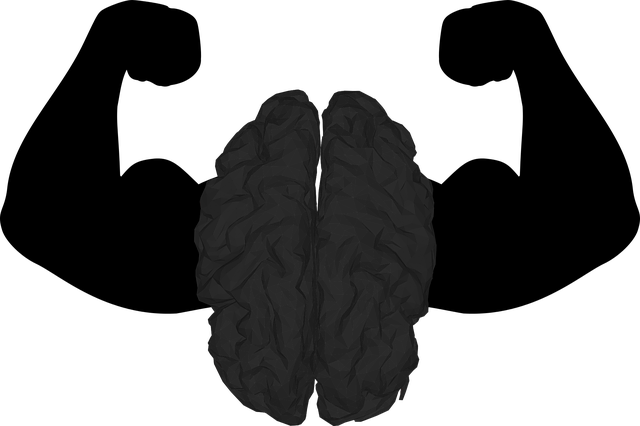Therapy for adults German speaking focuses on supporting the complex process of grief and trauma recovery through Mood Management techniques, fostering emotional health. It aims to destigmatize mental illness with open conversations and supportive atmospheres. Skilled therapists help clients develop self-care routines and healthy habits beneficial during and beyond the grieving period. Cognitive-behavioral therapy (CBT) and compassion cultivation practices are effective approaches, offering anxiety relief and healthier coping strategies. Supportive therapy settings empower individuals to express emotions, gain insights into their responses, and foster resilience, ultimately leading to healing and long-term well-being.
“Loss, grief, and bereavement counseling offer vital support for adults navigating difficult emotions. This article explores a German-speaking perspective on understanding these complex processes. We delve into the therapeutic role of counseling in processing sadness and trauma, presenting effective approaches tailored to adults experiencing grief.
Through ‘Finding Comfort,’ we share coping strategies fostered in supportive environments, guiding individuals towards healing. Resources and next steps are provided for continuous recovery, emphasizing the importance of therapy for adults in the German-speaking context.”
- Understanding Loss, Grief, and Bereavement: A German-Speaking Perspective
- The Role of Counseling in Processing Sadness and Trauma
- Therapeutic Approaches for Adults Dealing with Grief
- Finding Comfort: Coping Strategies in a Supportive Environment
- Resources and Next Steps for Continuous Healing
Understanding Loss, Grief, and Bereavement: A German-Speaking Perspective

Verstehen von Verlust, Trauer und Begleitung: Ein Blick aus der deutschsprachigen Perspektive. In der deutschen Sprache und Kultur wird das Thema Verlust, Trauer und Begleitung oft mit einer besonderen Sensibilität behandelt. Die Therapie für Erwachsene, die sich auf diese Themen konzentriert, zielt darauf ab, den komplexen Prozess des Verarbeitens und Überwindens von Trauer zu unterstützen. Ein zentraler Ansatz ist die Förderung der emotionalen Gesundheit durch Mood Management-Techniken, die es Klienten ermöglichen, ihre Gefühle auszudrücken und einen gesunden Weg zur Bewältigung zu finden.
Darüber hinaus spielt die Reduzierung des Stigmatisierens von Mental Illness eine wichtige Rolle in der deutschsprachigen Beratungspraxis. Durch offene Gespräche und eine unterstützende Atmosphäre wird versucht, die Scham und das Schweigen um Trauer und psychische Gesundheitsprobleme zu durchbrechen. Die Entwicklung einer Self-Care Routine für bessere mentale Gesundheit ist ein weiterer Schlüssel zum Wohlbefinden. Therapeuten helfen ihren Klienten dabei, gesunde Gewohnheiten zu etablieren, die ihnen in der Trauerphase und darüber hinaus zugutekommen.
The Role of Counseling in Processing Sadness and Trauma

Counseling plays a pivotal role in helping individuals navigate the complex landscape of sadness and trauma following loss or bereavement. It provides a safe and supportive space for German-speaking adults to express their emotions, process grief, and develop healthy coping mechanisms. Through professional therapy, clients can explore and understand the profound impact of their loss, allowing them to gradually integrate these experiences into their lives rather than being overwhelmed by them.
In addition to processing grief, counseling facilitates the development of a robust self-care routine for better mental health. This involves teaching individuals strategies to manage stress, anxiety, and depression, enhancing their overall well-being. Mental health awareness is crucial, especially in identifying signs of distress early on, which can be life-saving. Risk assessment is also integral, not just for clients but for mental health professionals, ensuring they are equipped to handle the emotional intensity associated with grief counseling while maintaining professional boundaries and self-care practices.
Therapeutic Approaches for Adults Dealing with Grief

Many adults dealing with grief often find solace in therapy, especially when navigating the complex emotions associated with loss. For German-speaking individuals, specialized counseling services can provide a safe space to process their feelings and develop coping strategies. One effective therapeutic approach is cognitive-behavioral therapy (CBT), which helps clients identify and challenge negative thought patterns related to grief. By reframing these thoughts, CBT offers anxiety relief and promotes healthier ways of coping with the loss.
Additionally, compassion cultivation practices have gained recognition in grief counseling. Encouraging self-care practices and fostering empathy towards oneself and others can significantly support individuals during their healing journey. These techniques enable adults to cultivate resilience, enhance emotional well-being, and gradually integrate the experience of loss into their lives while maintaining a sense of compassion and self-compassion.
Finding Comfort: Coping Strategies in a Supportive Environment

In a supportive environment, adults speaking German can find significant comfort and coping strategies when navigating loss, grief, and bereavement. The therapeutic setting allows for open dialogue and expression of emotions that might otherwise be difficult to articulate. Therapists skilled in German-speaking contexts offer safe spaces where individuals can explore their feelings without judgment. This process facilitates the development of inner strength and enhanced self-awareness, empowering them to manage their grief journey effectively.
Through various techniques such as conflict resolution exercises tailored for personal growth, participants gain valuable insights into their emotional responses. Self-awareness exercises play a pivotal role in understanding one’s coping mechanisms, enabling individuals to adopt healthier strategies over time. Ultimately, these supportive environments encourage the cultivation of resilience, helping German-speaking adults find solace and begin their path to healing after loss.
Resources and Next Steps for Continuous Healing

Healing from loss is a journey, and continuous support can significantly contribute to an individual’s recovery process. After experiencing grief and bereavement, seeking professional help through therapy for adults speaking German can be immensely beneficial. Many resources are available to aid in this challenging time.
Therapy offers a safe space to explore emotions, practice emotional regulation techniques, and develop effective coping strategies. It allows individuals to navigate their feelings of loss, understand their unique grieving process, and enhance their mental health awareness. With the guidance of a qualified therapist, one can learn stress reduction methods tailored to their needs, fostering resilience and promoting long-term well-being. These support systems are invaluable in navigating the complexities of grief and embracing new beginnings.
Loss, grief, and bereavement counseling play a pivotal role in helping adults navigate the complex emotions associated with significant life changes. By understanding cultural perspectives, such as the German-speaking approach discussed here, therapeutic interventions can be tailored to meet individual needs. Through various counseling techniques and coping strategies, those dealing with loss can process sadness and trauma, fostering continuous healing. For German-speaking adults seeking support, exploring therapy options offers a valuable path toward finding comfort and resilience.









